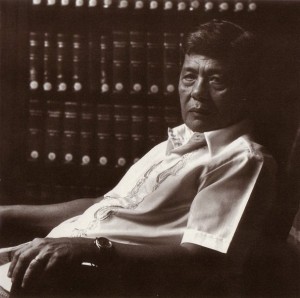Dear Mr. Heydarian: ‘Your argument exposes an ignorance that is frustrating, amusing and careless’

By Agustin Guido
There’s a certain art to rhetoric, but there’s also a fine line between eloquence and intellectual laziness. Richard Heydarian, in his attempt to wax geopolitical, made a statement that is as reductive as it is reckless:
“I came from the North of the Country where our human development index is almost Southern Europe. But if you go to Mindanao, their human development index is Sub-Saharan African level.”
As someone born and raised in Mindanao, I read this and felt something between exasperation and a weary sigh. We, Mindanaoans, have heard this before, usually from someone who has never breathed our air, tasted our soil, or witnessed the resilience of our people beyond the lens of statistics cherry-picked for shock value.
This is such a dangerous game of rhetoric!
It’s a play on words designed to make the speaker sound insightful while sacrificing nuance. It’s the kind of statement that makes audiences nod and say, “Wow, what a bold observation!”, without realizing that it reduces millions of lives into a punchline. Worse, it reveals a failure to grasp that Mindanao is not a mere statistic; it is a living, breathing testament to perseverance in the face of historical neglect.
Let’s be fair. There is some statistical truth here. Mindanao has historically been at an economic and developmental disadvantage compared to Luzon. We won’t deny that. But to compare us, in broad strokes, to Sub-Saharan Africa, a vast and diverse region with over 40 countries, each with its own struggles and triumphs, is neither an accurate nor an intellectually honest argument.
It is undeniable that Metro Manila and other developed areas in Luzon have seen faster economic growth, benefiting from being the country’s political and financial center. That’s simply how history and governance have played out. But let’s not pretend that progress is a singular narrative, nor that one region’s growth defines the entirety of the nation.
Mindanao, despite its economic challenges, remains a land of untapped potential. We are the country’s food basket, the agricultural backbone that sustains the very people who look down on us. We are the land of ancestral heritage, where cultures thrive in ways that the capital can only dream of preserving.
Yes, we have challenges. Yes, there are areas that need urgent reform. But our development is not a stagnant tragedy; it is a narrative still being written, and we are holding the pen.
Sometimes, the pursuit of sounding intellectually provocative backfires, and instead of appearing profound, one ends up in the stupidity corner. The choice of words in this statement is one such example. Perhaps it was meant to elevate an argument, but instead, it exposed an ignorance that is both frustrating and amusing. A prime example of the Boomerang Effect of careless words.
Because here’s the irony: while attempting to paint Mindanao with broad strokes, it inadvertently highlighted the intellectual elitism that has long ignored the South’s role in nation-building. That kind of rhetoric doesn’t make one a thought leader, it makes one a dinner-table contrarian with a microphone.
To Mr. Heydarian: Mindanaoans have a habit of taking insults with a smile, turning wounds into wisdom. We’ve been underestimated before, and each time, we’ve thrived despite it. So the next time you feel tempted to use us as a metaphor for underdevelopment, perhaps consider visiting first.
And if you do, don’t worry, we won’t let you leave without a hearty meal. After all, despite what you may think, we don’t just feed the country. We feed the soul.
Agustin Guido was born and raised in the historically rich village of Mandih in Sindangan, Zamboanga del Norte. He is a proud great-grandson of Datu Tangkilan of the Subanen Tribe, whose leadership and legacy continue to inspire him. He completed his elementary and high school education in Mandih and earned his Bachelor of Science in Nursing from Misamis University in Ozamiz City. After completing his education, Gus eventually made Dipolog City his home, in the province of Zamboanga del Norte before coming to the United States. He is currently the Director of Nursing at New Jersey Eastern Star Home, and vice president at New Jersey Association Directors of Nursing Administration LTC.










